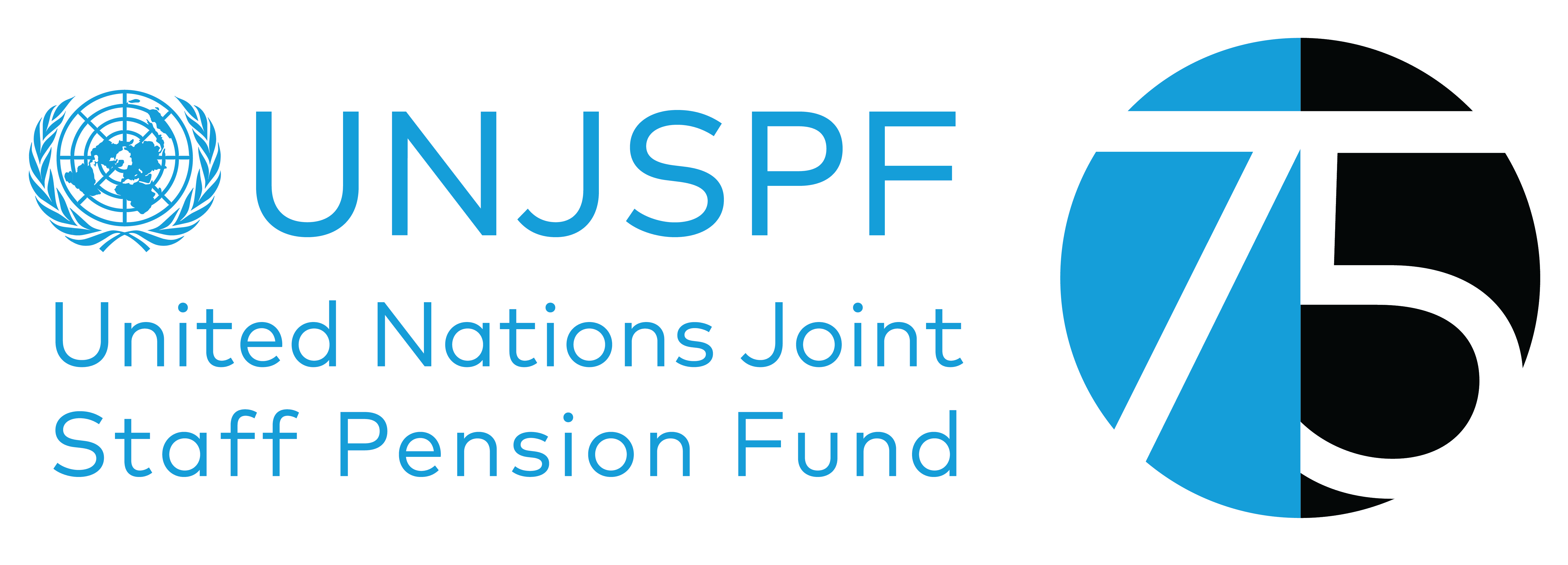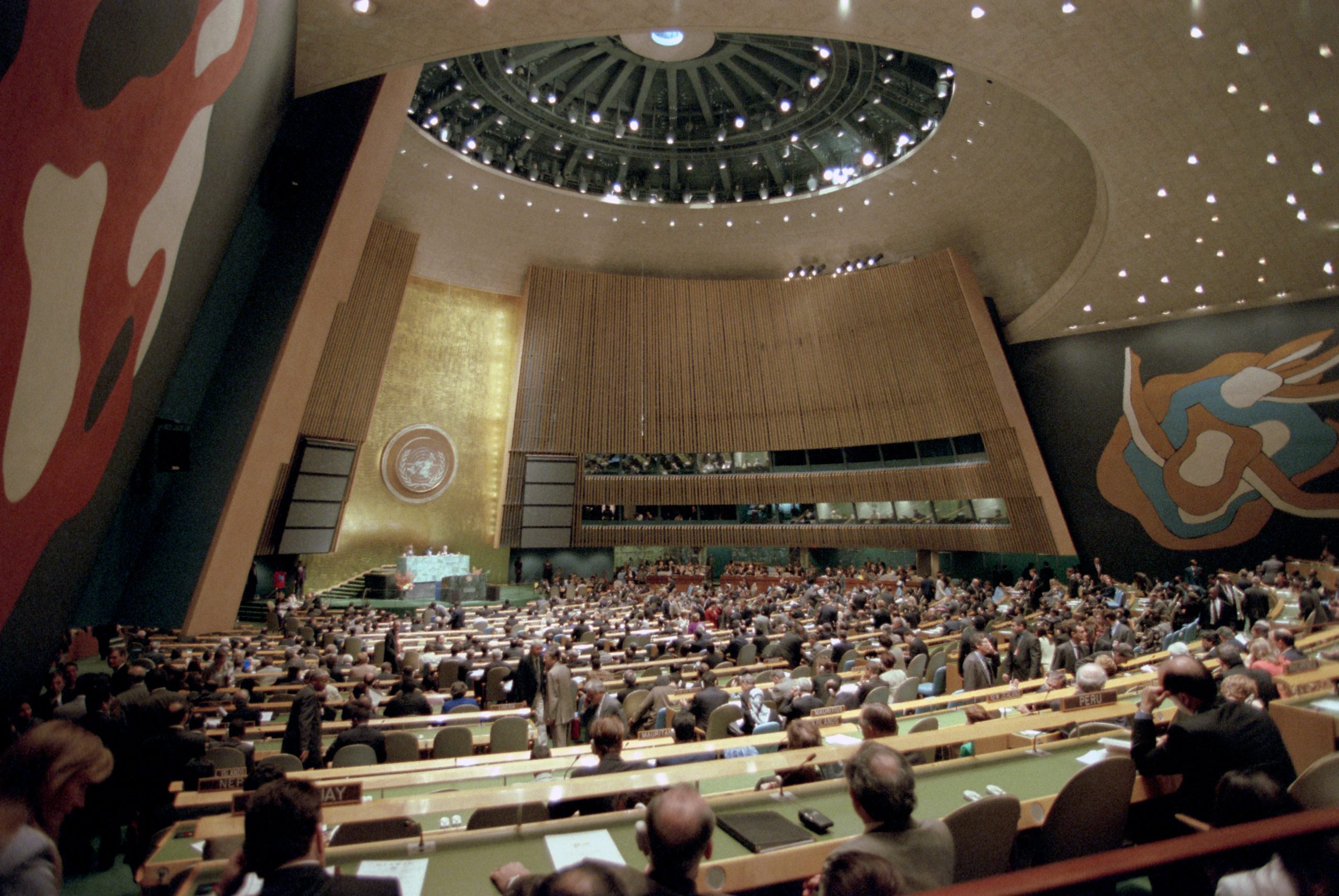The UN General Assembly (UNGA). The UNGA decides on pension matters, including the Fund’s budget, governance, and amendments to the Fund’s Regulations.
On 3 and 9 September 2019, the Fund held seminars for Permanent Missions to the United Nations.
Around 40 participants attended the two sessions, which included presentations from the Acting Chief Executive Officer/Secretary to Pension Board, Ms. Janice Dunn Lee, Ambassador Philip Richard Owade from Kenya, Chair of the 66th Pension Board and Mr. Sudhir Rajkumar, Representative of the Secretary-General (RSG) for Investment of the assets of the UNJSPF.
The Pension Board is a subsidiary organ of the UNGA, which decides on pension matters, including the Fund’s budget, governance, and amendments to the Fund’s Regulations. After each annual Pension Board session, usually held in July, a report is sent to the UNGA, leading to a resolution on pension matters, which is usually adopted in December.
Prior to adoption of the report by the UNGA, the Advisory Committee on Administrative and Budgetary Questions (ACABQ) and the 5th Committee of the UNGA convene the Chair of the Pension Board to formal hearings on benefits administration and investment matters respectively, supported by management from both entities of the Fund. These hearings usually taking place in October and November.
The seminar aimed to provide introductory information for new diplomats and experts about the UNJSPF, as well as an overview of the outcome of the 66th Pension Board session held in Nairobi, 22-26 July 2019.
Presentation of the Fund and the 2020 proposed administrative budget
Ms. Dunn Lee opened the seminar and presented the structure and operations of the Fund secretariat. She highlighted the steady improvement in processing of new benefit entitlements over the past years. “The last report of the UN Board of Auditors confirmed the good performance of the Fund,” she said. “Figures are even more impressive as at end of August 2019, with 93.1% cases processed in less than 15 days.” “This doesn’t mean all challenges have been resolved,” she added, “but the Fund is committed to providing the best client service to participants, beneficiaries and retirees.”
Turning to the Fund’s 2020 administrative budget proposal, Ms. Dunn Lee highlighted that “the budget is practically flat.” The proposed increase, she said, is purely technical, as the UN now charges the Fund for services provided under the revised methodology for cost-sharing between the UN Secretariat and the Fund.
Outcome of the 66th Pension Board session
Presenting the outcome of the 66th session of the Pension Board, Ambassador Owade recalled that the Pension Board has the role to administer the Pension Fund together with staff pension committees of member organizations. “I believe,” Ambassador Owade said, “that the Pension Board has been fulfilling its mandate with due care over the past 70 years.”
Ambassador Owade further recalled that the UNGA decided last year to replace the dual role of Chief Executive Officer and Secretary of the Pension Board with two distinct and independent posts of Pension Benefits Administrator and Secretary to the Pension Board. “The Pension Board,” he said, “reached consensus on the level, job description, selection process and reporting line of the new Secretary of the Board position.”
Ambassador Owade also explained that, in 2018, the UNGA had requested the Pension Board to examine options with regard to its size and composition. “Board Members discussed the issue thoroughly. We reached consensus on a proposal to keep the same number of seats while adding a seat for the International Organization for Migration (IOM) as a large member organization that joined the Fund recently through a re-arrangement of the rotation of seats on the Board.”
"The current composition of the Pension Board"
At present, the Pension Board has 33 members, reflecting equal representation of the three constituent groups of each member organization: (i) governing bodies, including UNGA members; (ii) Executive Heads, including the United Nations Secretary-General, and; (iii) Participants’ Representatives (elected by staff members who are participants in the Fund). In addition, there are four non-voting representatives of retirees and other beneficiaries put forward by the Federation of Associations of Former International Civil Servants (FAFICS).
This structure, Ambassador Owade continued, ensures equity and inclusiveness of the stakeholders in the Fund i.e., United Nations Member States, member organizations, staff in active service, retirees and beneficiaries. “The size and composition of the Board are delicate issues, as they were established over decades and they have been the subject of several reviews in the past.”
Investments of the Fund
The RSG highlighted the bifurcated governance structure of the Fund set up by the UNGA as early as in 1948, and reiterated periodically in UNGA resolutions ever since, including in December 2018. Under this bifurcated governance structure, the Pension Benefits Administration reports to the Pension Board, and the Office of Investment Management (OIM) reports to the UN Secretary-General. Mr. Rajkumar commented that coming from the World Bank to OIM in January 2018, he had been particularly struck by the wisdom and foresight displayed by the UN General Assembly as long ago as 1948 in deciding, and reiterating periodically ever since, that the UN Secretary-General has the fiduciary responsibility for investment of the assets of the Fund. Mr. Rajkumar mentioned how he had witnessed first-hand during his previous World Bank career the destruction in asset values – and consequent destruction of financial health – in many public sector pension organizations around the world, as a direct result of the pressures which inevitably arise in such organizations. The Fund’s current healthy financial situation, where it is fully funded, can be directly attributed to this layer of insulation which protects the Fund’s assets from many of the same pressures.
The RSG elaborated on the mission, vision and values of OIM and highlighted the key priorities for the Office of Investment Management.
The RSG noted that the number of participants for each beneficiary in the Fund had declined from around 5 in 1975 to 1.6 in 2018, which is a sign that the Fund is maturing. As the fund matures, participant contributions alone are not sufficient to cover the benefit payments, therefore the Fund is becoming more dependent on investment income for its financial sustainability. This by itself is quite normal for all pension funds. However, it does highlight the importance for stakeholders of strengthening the Office of Investment Management.
The RSG explained that the new Strategic Asset Allocation recommended by the 2019 Asset Liability Management study is expected to reduce the total Fund investment risk and lower the probability that the contribution rate would need to be increased in the future. The RSG shared that OIM’s policy of broad diversification continues to be a reliable strategy for improving the risk-return profile of the Fund over the long run and elaborated on the diversification of the Fund’s assets by geography, currency and asset class.
Mr. Rajkumar shared that in January the OIM selected a specialized consultant to assist it in developing a 5-year Strategic Plan and Implementation Roadmap to help realize its vision to become a best-in-class global long-term investment institution. The study helped OIM to benchmark and assess gaps compared to peers, hear from staff and co-create OIM’s strategy to realize its vision.
The RSG noted that OIM’s budget proposal was informed by a benchmarking study of some 700 global investment institutions, conducted by its specialized consultant, which showed a significant understaffing of OIM. OIM had no increase in established posts for the past six years (since 2013), while assets managed by it had grown 31%.
OIM proposed an increase in staff yet its 2020 proposed budget in dollar terms was lower by over $600,000 relative to 2019. It would fund the additional posts completely from savings it had identified by reducing use of non-discretionary advisors in accordance with UNGA resolutions and improving financial resource management. Mr. Rajkumar noted that 100% of OIM’s budget was paid for from the Fund’s assets, with no contributions from the UN budget.
Mr. Rajkumar noted that the global investment environment is becoming more complex and future investment returns may be lower than in the past. It is crucial therefore for the OIM to be fit for purpose to serve the best long-term interests of the 207,000 current and future beneficiaries of the Fund who depended on it for their old age security – together with their families, this meant at least a million people.
Becoming fit for purpose requires a certain amount of change to make OIM a more modern, adaptive and transparent investment organization with a high-performing culture. Mr. Rajkumar emphasized that he was committed to a change management process which embraced the themes of communication, inclusion, empathy, and support for adaptation.
Finally, the RSG confirmed the excellent financial health of the UNJSPF and pointed out that OIM’s goal is “to place the Fund on a secure, stable and robust foundation for the next 50 years”.
Concluding the seminar, Ambassador Owade said “the initiative of having seminars is very much welcome, it will help prepare for UNGA work, and I trust it should be organized every year.”





